- Details
- Written by Gordon Prentice
The long running drama between Anthony Pullano and Magna’s community relations person, Steve Hinder, comes to Court tomorrow (20 November 2018) in front of a real live jury.
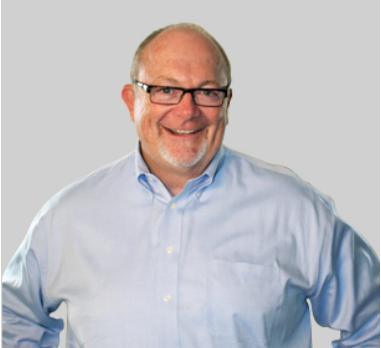
Four years ago Pullano claims he was assaulted by Hinder, a former police officer, who allegedly punched him in the chest, dislodging his pacemaker. Pullano was taken to hospital. The Auroran newspaper tells us his injuries led:
“to a “deterioration” in health including “loss of heart function, loss of sexual function, a loss of right hand function, and chronic pain and inflammation in his right hand and/or right arm.”
Doesn’t sound good.
Pullano pursued Hinder through the criminal courts for assault but the Crown concluded in May of this year there was no prospect of a conviction and the assault charges against Hinder were withdrawn.
Understandably, Pullano is unhappy. Undaunted, he decides to press ahead with his civil action against Hinder where he is, apparently, claiming $5m in damages, citing loss of enjoyment of life, loss of opportunity and mental distress.
I haven’t met the jolly Steve Hinder but he seems to be absolutely everywhere, smiling into the lens of every camera.
I suppose it shows what a sheltered life I lead never having run into the great man.
Hinder is, of course, in favour of the destruction of heritage buildings in Newmarket’s old downtown so he is not my favourite person.
As for Pullano, he has demonstrated remarkable staying power.
He is not going to forgive – or forget – that blow to the chest four years ago.
The trial starts at 1pm in Courtroom 402 at the Courthouse in Eagle Street and will continue at 9.30am on the days following.
This email address is being protected from spambots. You need JavaScript enabled to view it.
- Details
- Written by Gordon Prentice
The Town of Newmarket is at last taking steps to protect established neighbourhoods from Monster Homes.

These huge structures by definition dwarf their neighbours and transform streets out of all recognition.
The Town is to spend $150,000 to bring in outside consultants who will identify the dominant characteristics of Newmarket neighbourhoods and ensure that any new infill developments fit in. Anyway, that’s the theory.
In Newmarket these things tend to be done at a majestic pace and, true to form, the project is scheduled to be completed by December 31, 2019, a leisurely thirteen months away.
“The goal of the Official Plan Amendment is to identify Newmarket neighborhoods based on the existing characteristics and implement policies that are reflective of the built form to guide new infill residential dwellings; addressing community character and compatibility.”
I welcome the fact that the Town is prepared to act – but why on earth does it take so long to get things done? And why is so much work farmed out to consultants?
Urgency. What's that?
The problem of inappropriate infill development was recognised by the Town’s Director of Planning, Rick Nethery, in a report to councillors in 2012 but he has absolutely no sense of urgency about anything.
When developers insert a giant Monster Home into a quiet residential street they are, in effect, casually giving the finger to the people who are already living there. They - the residents - will soon realise they are on their own if they turn to the Town for help. They aren’t consulted. Their views aren’t canvassed. They will only realise something is amiss when the bulldozers turn up next door. That is precisely what happened at 1011 Elgin Street where Morad Dadgar’s megastructure now looms over its neighbours.
At a Council workshop in March 2018 planning staff set out the options for controlling and regulating infill development. You can see what happened here.
The planners pointed to other municipalities that had acted to control inappropriate infill. Personally, Ottawa seems a pretty good template and councillors are told it would cost $45,000 to lift that model and adapt it to fit Newmarket. Instead, the Town is shelling out three times this sum for consultants to start presumably from scratch.
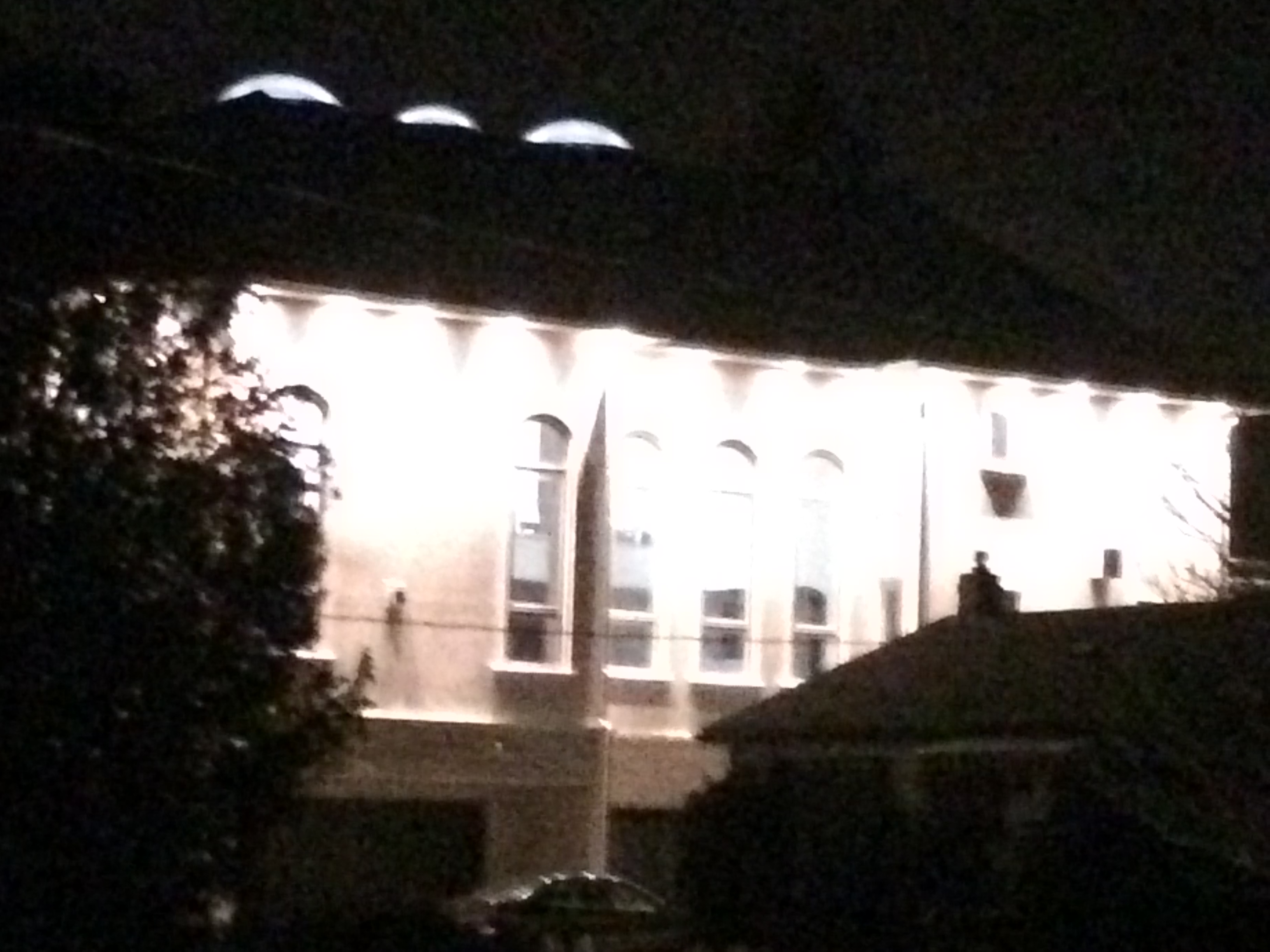
The Town’s document inviting bids says this:
“While intensification is primarily directed to the Town’s urban centres, limited intensification can still occur in stable residential neighbourhoods. If done respectfully, the redevelopment can be of value to the community. However, redevelopment can occur in a manner that does not respect the built form that exists.
In older neighbourhoods, existing lot areas and frontages are often large enough to accommodate larger homes while still meeting the requirements of the zoning by-law. As a result, new development can occur in a form that is inconsistent with the height, building footprint, design and character of the existing residential dwellings in the neighborhood.”
That narrative is a straight lift from reports the Director of Planning was sending to councillors six years ago.
In the intervening period, we’ve seen houses as big as barns pop up in the most unlikely places - even in Glenway where new development was supposed to be like-to-like.
Your street. Your rules.
Ottawa’s “Streetscape Character Analysis” (SCA) was introduced in 2015 and seems to be working well enough. An SCA must be submitted as part of any development application for new dwellings.
In Ottawa they believe
“your street gives you your rules.”
That sounds like a maxim tailor made for Newmarket if we want the Town’s residents, not developers, to shape their own neighbourhoods.
This email address is being protected from spambots. You need JavaScript enabled to view it.
Update on 14 December 2020: Town agrees Established Neighbourhoods Compatibility Study
Update on 16 December 2020: From Newmarket Today: Town agrees new rules for residential areas.
- Details
- Written by Gordon Prentice
Donald Trump is a shameless compulsive liar. 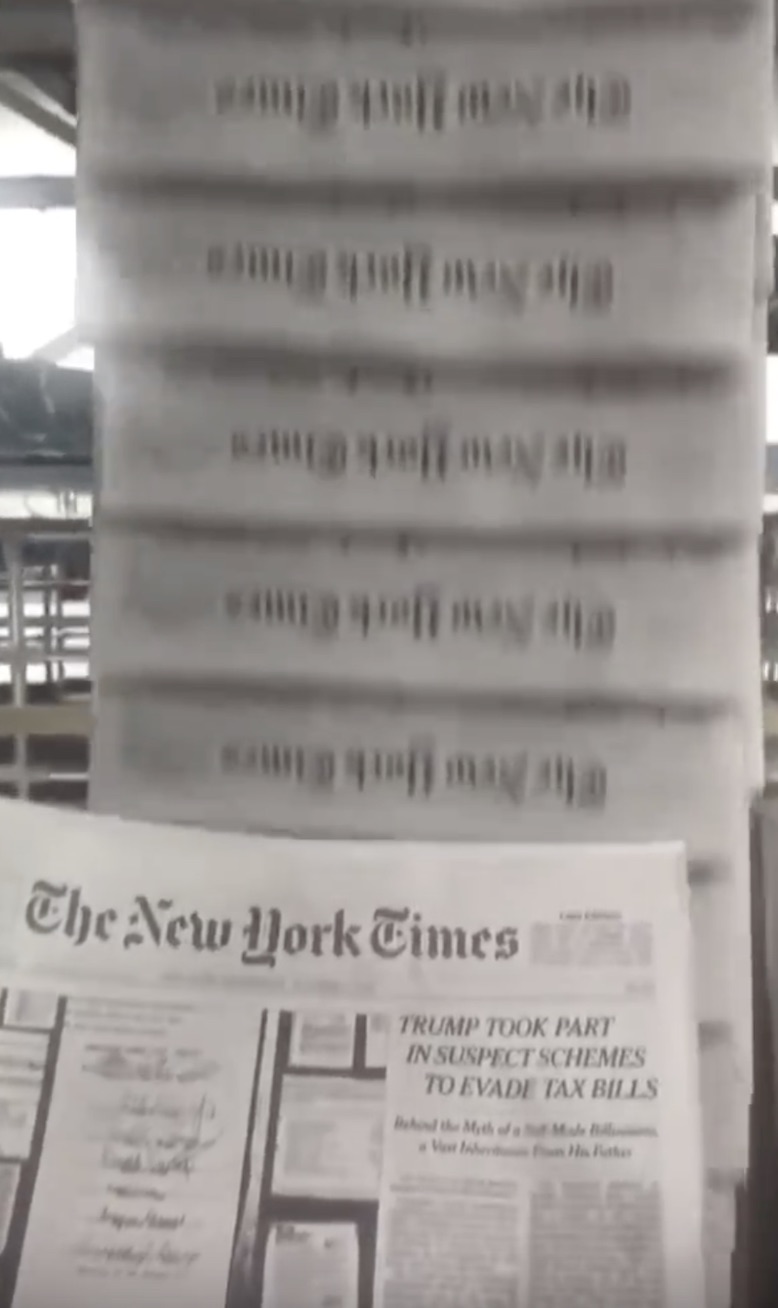
Anyone who doubts the truth of that statement has not been paying attention.
But what was the first BIG lie? The whopper that set him on the road to a lifetime of mendacity?
The Canadian business journalist, Susanne Craig, at the New York Times since 2010, says Trump’s claim that he made his own fortune is the “foundational lie”.
Trump boasts he is a self-made man, allegedly turning a loan of $1m from his father Fred into a global empire worth billions. But it’s a lie.
Trump's braggadocio
Last month, the New York Times reported:
“Donald J. Trump built a business empire and won the presidency proclaiming himself a self-made billionaire, and he has long insisted that his father, the legendary New York City builder Fred C. Trump, provided almost no financial help. “I built what I built myself,” the president has repeatedly said.
But an investigation by The New York Times has revealed that Donald Trump received the equivalent today of at least $413 million from his father’s real estate empire. What’s more, much of this money came to Mr. Trump through dubious tax schemes he participated in during the 1990s, including instances of outright fraud, The Times found.”
The story shows the dubious ways in which Trump made his money. Since the New York Times story was published Trump has been uncharacteristically quiet, ignoring its jaw-dropping exposé. No lawyers’ letters are anticipated.
Last week in Toronto I sat in on a conversation between Craig and former CBC investigative journalist Julian Sher (who produced The Fifth Estate for many years) hosted by the Canadian Journalism Foundation.
It is gripping stuff.
Craig has been covering Trump and his finances since early 2016 when she received an anonymous brown paper envelope containing three pages from one of Trump’s tax returns. She and two other Times’ journalists spent 18 months putting the jigsaw together working out of a room next to the Times’ Arts and Travel Office to which only they had access.
Sniper
Craig tells us she often felt uneasy sitting at her desk by the window fearing she might be the target for a sniper. The Times’ building is a fortress but, despite this, I learn staff get regular first aid training. Good grief!
Initially, Craig and her colleagues worked on publicly available information, identifying every single one of Fred Trump’s properties, establishing what he paid for it and how much revenue it generated. Craig gave each property its own name – a kind of aide memoire. From this they could begin to understand Fred’s modus operandi.
Rent was already being paid to Donald Trump (age 3) and by the time he was 8 Donald was a millionaire. By the time he was in college Donald was getting $1m a year from his father.
Fred did everything he could to minimise the amount he paid in tax, transferring wealth across the generations. The sums are staggering.
Despite this generosity, Trump gets his lawyers to draft a codicil to Fred's will making him the sole beneficiary. Fred, ailing but still compos mentis, tears it up.
With the mid-term elections now behind them, Americans - and the rest of us - may soon be focussed on Trump’s tax returns.
I hope so.
Their publication will be a truly delicious moment to savour.
This email address is being protected from spambots. You need JavaScript enabled to view it.
- Details
- Written by Gordon Prentice
Bill Blair’s “consultation” with Canadians on whether or not to ban assault rifles and handguns wraps up on Saturday 10 November 2018, ending with a whimper rather than the more appropriate bang. 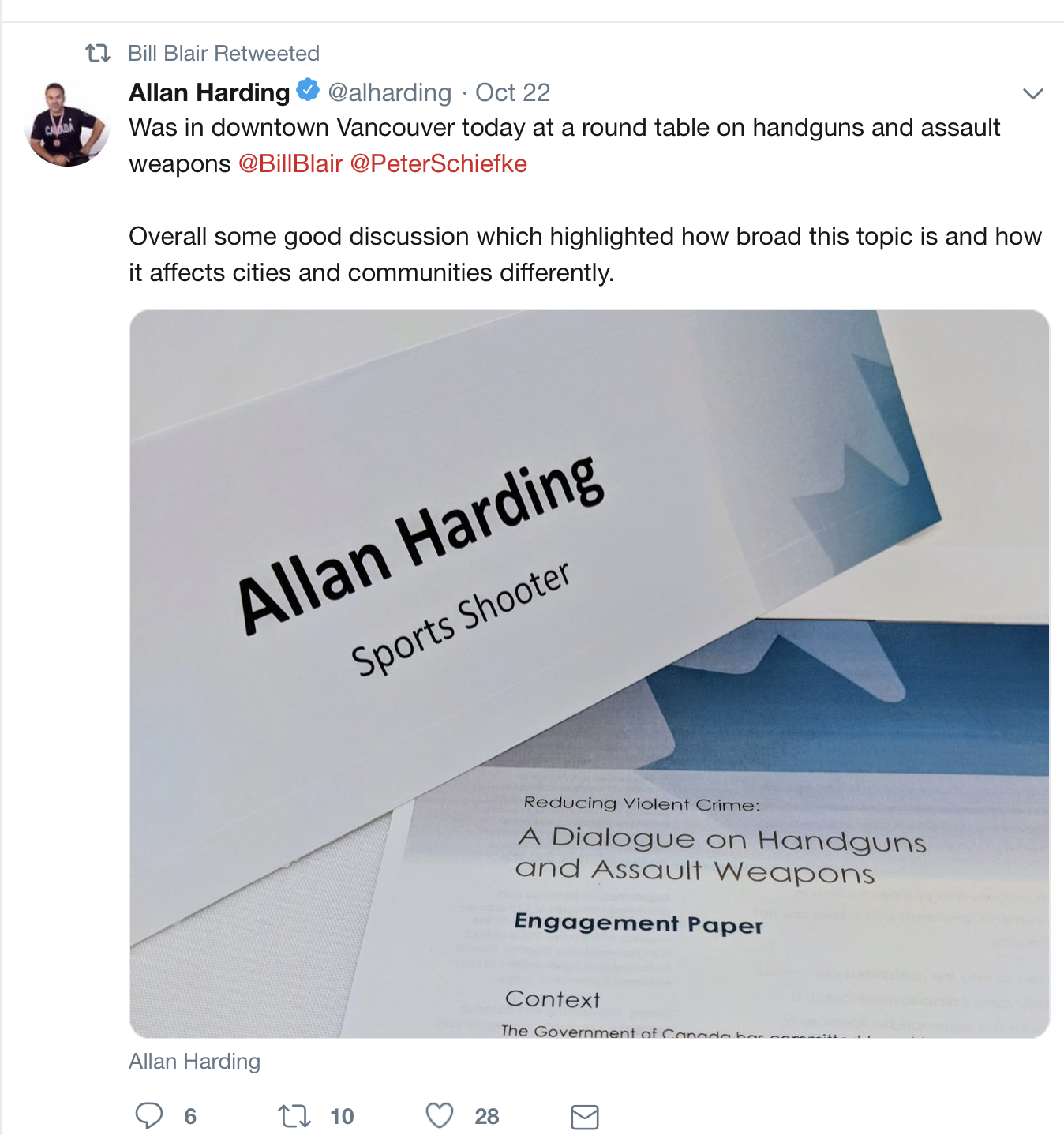
Buried in the website of Public Safety Canada you can find a form to fill in.
I learn that “In person Stakeholder engagement sessions will be taking place across the country” until the end of November but these are
“by invitation only”.
This is a consultation by stealth.
It’s the pretense that gets me. Holding out the possibility of a ban when, in reality, nothing is going to happen.
No attempt to engage
No newspaper or TV ads asking the public for their views. No billboards. No real attempt to engage people.
Only one tweet from the Minister on the subject – and that was a retweet of the views of a sports shooter who had been present at one of Blair’s “by invitation only” events in Vancouver.
Blair has posted nothing on Facebook about the handgun consultation. But he had something to say about the eleven people slaughtered in the Pittsburgh synagogue.
“May the memories of the victims forever be a blessing.”
I don’t know if I can take much more of this stuff.
Blair’s prose is beautiful but, as I keep repeating, thoughts and prayers aren’t enough. A fitting tribute for the victims in Pittsburgh would be a handgun ban. It won’t happen in the United States of course but it could here.
Unfortunately, the chances are vanishingly slim. The Government is afraid of its own shadow – and of the gun lobby.
They're in for a real big shake
Tony Bernardo, executive director of the Canadian Shooting Sports Association, was quick to warn:
"It's very disappointing that an elected government would turn on two million law-abiding citizens that haven't done anything wrong and start looking at punitive measures of taking their lawfully owned property.
"If they want to start playing Russian roulette with the electorate, well okay, game on. If they think our community is going to meekly roll over and accept this, they're in for a real big shake."
Sounds threatening to me.
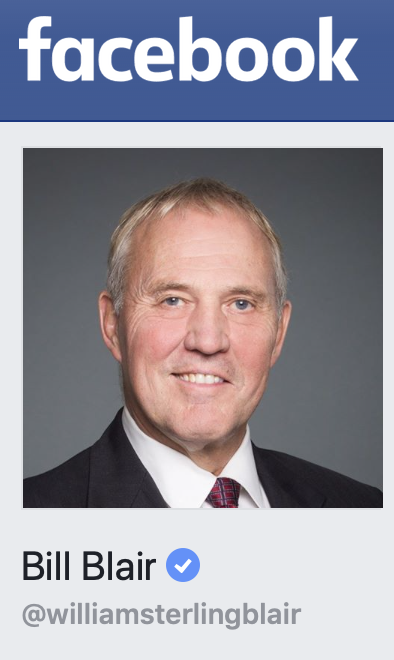
According to Statistics Canada there were 130 homicides committed with a handgun in 2016 - the most in more than a decade. Handguns accounted for 21 per cent of the total homicides that year, and 58 per cent of the shooting homicides. Since data started to be collected in 2008 we have seen a steady rise in the theft of legally owned guns. But legal gun owners have been adding fuel to the fire, selling their guns illegally.
Legal handguns sold on illegally
The Head of Toronto Police Guns and Gangs Unit, Rob Di Danieli, told the National Post that before 2012, about 75 per cent of the firearms were trafficked from the United States but by last year about half came from within Canada. He said legal Canadian gun owners were selling their weapons illegally. He quoted one example where 47 guns had been sold over a five month period making a $100,000 profit for the legal gun owner.
The RCMP estimates that about half the illegal guns they trace started out as legal guns purchased at a Canadian gun store. The rest come from American gun smugglers. The National Post quotes an RCMP estimate from 2016 that up to 61 per cent of illegal guns started life as legally owned Canadian firearms.
In 2016, for the first time, shootings overtook stabbings as the cause of death in homicides.
Phoney consultation
I wrote to Bill Blair on 11 October 2018 to ask for details of his handgun consultation. I heard nothing and followed up with a reminder last week but still I hear only silence. What is it with Canadian politicians?
How is it possible to have an on-line public consultation and then ignore a member of the public who is so obviously keen to participate?
Toronto and Montreal have made the headlines but what about other municipalities – including my own in Newmarket – who may wish to express an opinion. What weight will be given to their views?
Seems to me Bill Blair is just going through the motions.
Tell me I’m wrong.
This email address is being protected from spambots. You need JavaScript enabled to view it.
Update on 8 November 2018: The epidemic of mass killings in America continues relentlessly, without missing a beat, accompanied by the usual condolences, tributes, thoughts and prayers. Nothing yet from the NRA.
Update on 12 November 2018: From the Globe and Mail: "We must criminalise gun possession in Canada."
- Details
- Written by Gordon Prentice
On Tuesday (6 November) Americans will be voting in their mid-term elections.

In too many places the integrity of the ballot will be compromised as voters use ancient voting machines that can be easily hacked. But that’s the United States where the wheels are coming off the wagon.
But before we get too superior we should ask ourselves about internet voting in Canada. Is it secure?
In a word. No.
Here in Newmarket, for the first time, we had no paper ballots in the municipal election on 22 October 2018. Voters could phone or go on-line to cast their ballot.
Newmarket goes to Spain for internet voting expertise
The Town contracted with Scytl – a privately owned corporation headquartered in Spain - to provide the electronic voting services. Its shareholders are venture capital funds and private individuals including the company’s founders and management team.
Unlike some other municipalities in Ontario where voting hours had to be extended because of problems with “system load”, everything here appeared to go quite smoothly. But can the Town guarantee the security and secrecy of every vote cast?
Hmmmmm. No.
In April 2018 the CBC interviewed Aleksander Essex, a Western University professor and expert on cyber security. He says on-line voting technology “carries little transparency” and cannot guarantee that votes are counted correctly. Professor Essex told the CBC:
“The problem is exacerbated by the fact that some municipalities don't even know where the servers they use for the online voting are located. The election server itself may not even be in Canada."
adding:
"We did a study last year on the Western Australian state election and we found the private keys. These are the encryption keys to protect your ballot and voter credentials. We found those keys living on servers all over the world, including in China."
Toronto rejects internet voting
In 2016 the City of Toronto considered moving to on-line voting but rejected it, sticking with paper ballots in last month’s election. An article in Municipal World explains why Toronto and Vancouver took a hard line.
So why did Toronto reject internet voting?
Toronto’s City Clerk, Ulli Watkiss, told Toronto’s councillors:
“The overwhelming consensus among computer security experts is that Internet voting is fundamentally insecure and cannot be safely implemented because of security vulnerabilities inherent in the architecture and organization of both the Internet and commonly used software/hardware.”
She says vendors are “rarely held liable for security failures or election disasters” and that contrary to the widespread belief internet voting does not increase voter turnout nor engage young people.
Light years ago (in 2014) an expert panel of computer scientists told the UK Parliamentary Speaker’s Commission on Digital Democracy:
“The particular challenge for voting systems is that all votes are secret, and the expected result of the election is not otherwise known, so there is no independent check on the result returned by the system. The integrity of the process is thus central to the integrity of the result. This is unlike almost any other form of computerised activity, such as banking, where the result of a transaction can be checked, and so mistakes and fraud can be identified and corrected.”
Hacked off
Security systems are frequently compromised. At Facebook. At Cathay Pacific. At British Airways. At Air Canada. At Uber. At Deloitte. At Ashley Maddison. At Walmart. At the Bank of Montreal. At the Canadian Imperial Bank of Commerce. Everywhere. All the time.
So why would we believe it could never happen in our elections?
It is unlikely to become an issue until it does.
And then what do we do?
This email address is being protected from spambots. You need JavaScript enabled to view it.
Page 140 of 287